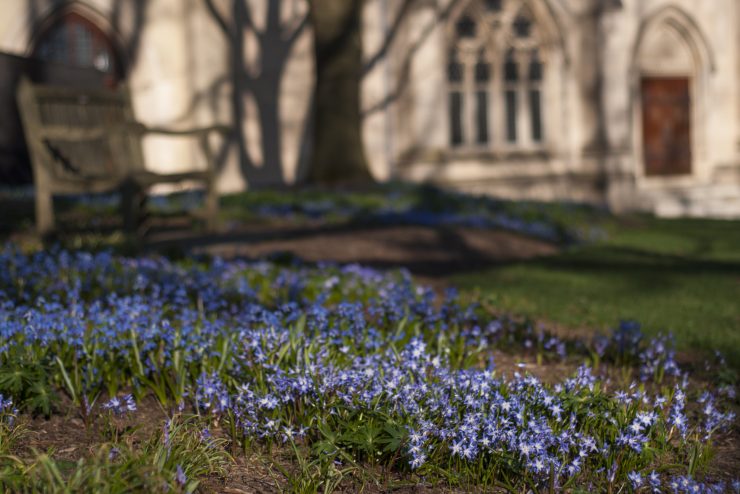Ethan Bishop

Now in Jerusalem by the Sheep Gate there is a pool, called in Hebrew Beth-zatha, which has five porticoes. In these lay many invalids—blind, lame, and paralyzed. One man was there who had been ill for thirty-eight years. When Jesus saw him lying there and knew that he had been there a long time, he said to him, “Do you want to be made well?” The sick man answered him, “Sir, I have no one to put me into the pool when the water is stirred up; and while I am making my way, someone else steps down ahead of me.”
— John 5:2–7
Isn’t it odd, that a man in need of and so close to healing water was forsaken by crowds seeking the same all around him? Perhaps not. For I believe that most of us who are trapped by inner pain and suffering, consumed with the mission to be made well again, forget others close to us who may also be in search of healing. This man at the gate had no one to help him down to the water’s edge, and yet those who may have been best positioned to empathize with and help him did nothing. Understandably, they were focused on rushing to the front of the line, ultimately unconcerned with those who found themselves always in the back.
Lent is, of course, a time of introspection and reflection, but should we not also be wary of using this as an excuse to become indifferent to our neighbors? The wider world is full of conflict, but we should never let our own inner search for meaning, or our own pain, make us forget those in the “back of the line,” for it is our own line too. I like this phrasing, as a way of explaining our baptismal covenant, we are to “seek and serve Christ in all persons.”
How many of those at the water’s edge could have taken the man down with them? How many more could have returned to him after their own healing instead of moving quickly on? I focus on this one particular point because it is calling me to be a better Christian. It is calling me to act. So I will continue my own feeble attempt at pushing aside the natural indifference of introspection. I have been guilty of not going to the back of the line because I have been lost in my own journey to reach the river. I think, as a spiritual practice, it is not enough to tell ourselves to remember “the least of these.” We need a clearer picture and metaphor to reorder our lives. Instead, as a spiritual practice, we Christians should “always be going to the back of the line.”
This Lent, when the sacrament of bread and wine have helped heal something within us, when the triumph of Easter comes and we are animated by the glory of the Holy Spirit, let us not forget those in the back, those who are still waiting to be healed, those who are still waiting to be helped to the water’s edge, those who are still waiting for the good news of the risen Christ. As brothers and sisters, let us go there together, let us hold hands and head to the back of the line.